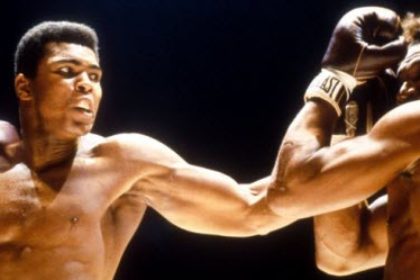
A GigaOm article today, followed by a rash of calls and emails from folks wanting an opinion about the latest Goldman Sachs investment in Facebook, spurned this article. I’m troubled by the lack of distinction between Google and Facebook, with almost every query asking for insight to how Google’s (or Twitter’s) growth and valuations reflect that of Facebook. The Facebook microcosm couldn’t be any more different from the house that Google built and to premeditatedly cover the investment as though Facebook is the next Google, only serves to mislead everyone.
Goldman Sachs, apparently, is investing $450 million in the social network, drawing the usual eyebrows above their comfortable homes on faces. Placing the valuation of Facebook around $50 billion, everyone wants to know how, why, and what’s next. But how is the contrast to Google accurate? RRW’s Marshall Kirkpatrick is one of the few, I’ve seen, to recognize the fault in this comparison:
“Thank goodness for Google and Twitter. Without them, Facebook’s control over peoples’ identities online would be virtually unchallenged.”
In practice, the differences between the companies and their endeavors are worlds apart. Google and Twitter fundamentally believe in the exposure of and access to data; with their search and social technologies, they’ve revolutionized the way we connect, explore, and share via the internet. On the other hand, while Facebook creates the illusion of connectivity and sharing, the internet behemoth is truly a walled garden, more likened to iTunes (have you ever tried to print your Facebook photos on Kodak Gallery?). The result for Facebook, a far easier to use user experience, drawing consumers by the multitudes to a platform that ultimately controls the future of it’s domain.
Facebook v. AOL
GigaOm’s Mathew Ingram rightly draws a comparison of Facebook to the previous AOL / Time Warner merger; a more significant comparison than I think his story fully vets.
“It’s been over a decade since Time Warner and America Online merged in a $180-billion deal, marking the peak of the Internet bubble and the beginning of a long drought for technology stocks — a drought that has arguably been broken only by Apple and Google.”
That analogy rings more truth than the simple statement conveys. How does the recent investment reflect the demand for Google or Twitter? I, for one, don’t think it does; no more than AOL challenged Yahoo a dozen years ago, no more than iTunes stifles an open format for digital content.
People will sacrifice ease of use for flexibility just as they sacrifice flexibility for ease of use.
Facebook will go on to dominate the concept of an Open ID, a much desired promise of a single, secure, and personal experience with everything you do online; but it will do so while finding itself in the middle of online advertising and privacy battles. Namely, because of that difference between the closed Facebook and open Google platform. Facebook knows who you are and what you do, they are going to learn much more, and they can do amazing things with that data (personalizing advertising in ways never before possible).
Ultimately, for good AND bad, Facebook is not Google. Throughout this process and your interaction with Facebook, you are going to lose control over the use of your data online; it’s not your data, it’s Facebook’s. Don’t forget what happened to everything you had on AOL when that walled garden came down and don’t let the media’s comparison of Facebook to Google mislead your impression of what’s going on.
As for the valuation of Facebook… well, who can say. I still work for a living.


